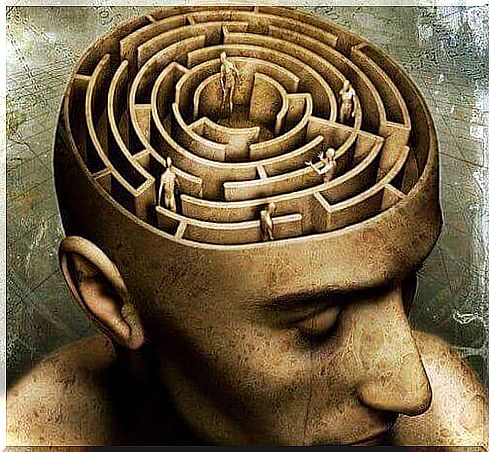Humanistic Psychology, What Does It Consist Of?

The main characteristic of humanistic psychology is to consider the human being as a whole, knowing that there are multiple factors that intervene in mental health, personal growth and self-realization. Among them, aspects such as emotions, the body, feelings, behavior, thoughts, etc. converge and interrelate.
We are not wrong if we say that this approach, this theoretical and practical perspective stands today as one of the most remarkable psychological currents. It is a legacy that is worth knowing and that can undoubtedly provide us with valuable tools: self-knowledge and self-discovery, skills for change, social relationships, strengthening self-esteem …
Few approaches to psychology look directly at the positive traits and behaviors of the human being. It is from these dimensions that we must start to promote healing, growth and change. Within ourselves there is a highly valuable capacity that can guarantee our well-being and balance.
How did humanistic psychology emerge?
Kirk J. Schneider psychologist, psychotherapist and one of the most renowned exponents of humanistic psychology explains to us in a study published in the journal American Psychologist that today this approach, together with that of positive psychology, constitutes an advance within the field of behavioral sciences and psychotherapy itself.
We are facing an effective current to treat a large number of psychological disorders. It is also useful as a growth tool and to improve family relationships. Thus, and despite how consolidated it is, it can be said that this current of psychology is relatively young.
Humanistic psychology appears in the middle of the 20th century as an alternative to the two main forces: behaviorism and psychoanalysis. Its purpose was to give a different answer, addressing the problems of the human being and offering a perspective from the field of health, rather than disease.

The freedom of the individual and existentialism
This perspective opted for a more holistic vision and less focused on the pathological, on the influences of the past or the environment to enhance the positive side of human nature. Thus, theories such as Abraham Maslow’s on needs and motivations laid a foundation on which to shape another type of philosophy. She was joined by such relevant names as Carl Rogers, who emphasized, for example, the freedom of individuals when it comes to taking the course of their lives.
In this way, humanistic therapists of this time firmly believed that people are intrinsically motivated to fulfill themselves, to advance towards their own goals and thus achieve healing, wisdom or that personal summit to which each one aspires.
The person is also considered as an individual being, who must be cared for in a multidimensional and personalized way. The roots of humanistic psychology are in turn within the philosophical current of European existentialism, an approach led by such relevant names as:
- Jean Paul Sartre: “Man is born free, responsible and without excuses”.
- Jean Jacques Rousseau: “Man is good by nature, it is society that corrupts him.”
- Erich Fromm: “If I am what I have and what I have I lose, then who am I?”
- Viktor Frankl: “Man realizes himself to the same extent that he commits himself to fulfilling the meaning of his life.”
These authors have a vision of the human condition based on freedom, the meaning of life, emotions and responsibility. They consider the individual as a being responsible for their life and their actions, capable of finding their own way to freedom.
Main precursors of humanistic psychology
We were talking about them a moment ago: Abraham Maslow and Carl Rogers can be considered as the main precursors of humanistic psychology. Let’s get to know something more about them.

Abraham Maslow
Most of us know Abraham Maslow for his famous pyramid of human needs. In it, it establishes a hierarchy with different levels of needs and motivations, starting from the most basic (physiological), until reaching the peak where self-realization would be found: a concept created by Maslow when considering that when human beings have satisfied all their needs it is when it reaches a stage of development of its vital impulse.
Maslow’s contribution to psychology is immense, especially in the field of personal growth. In fact, to this day concepts such as self-realization continue to be reviewed and updated. And an example of this is the study carried out by Professor Willard Mittelman, from the University of Georgia , where he proposes to replace this term with “experiential openness”.
Carl rogers
Carl Rogers opted for a novel vision of doing therapy, one where he facilitates a more direct relationship with the “client” (a term he coined within psychology, considering it more appropriate than “patient”). In his book Client Centered Therapy, he shows how in his clinical experience he rejects directive techniques, showing a closer relationship with his clients, thus favoring a more meaningful encounter with themselves.
For Rogers, people who go through a moment is because they are “asleep” and it is necessary that they wake up through their inner wisdom. The therapist serves as a guide for them to find their own answers, since he trusts the self-healing capacity of each individual.
Characteristics of humanistic psychology

Take a broad and holistic perspective
It is characterized by seeing the person as a whole, globally. Each of the aspects having the same relevance: the thoughts, the body, the emotions and the spiritual realm. These aspects are interrelated and mutually converge. They are the main way for the individual to find himself.
Human existence occurs in an interpersonal context
For this reason, they consider that the relationship with others is very important and necessary, taking into account the context in which it occurs for the individual development of the human being.
Decision-making capacity and personal development
People have the ability to make their own decisions, to take responsibility for themselves and to undertake a development and deployment of their own potentialities.
In addition to this, personal development is promoted and facilitated. The psychologist serves as a tool for the person, so that she herself, through her own abilities, can come to understand and develop herself.
The value of inner wisdom
People have an innate tendency to self-actualization. The human being can trust the wisdom that comes from within, since all healing is found in their own answers. To do this, it is necessary to understand that it is not necessary to control the environment or control one’s own emotions until they are repressed.
To conclude, humanistic psychology focuses on the individual from a global vision, understanding that all the aspects that make up the human being are important. He is considered a unique being, responsible for his own experience, capable of becoming aware of his own resources to develop, reach self-realization and discover his potentialities.









